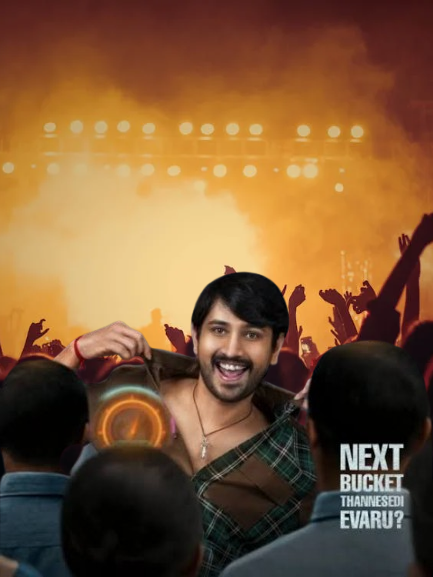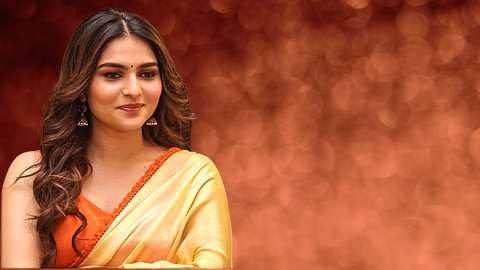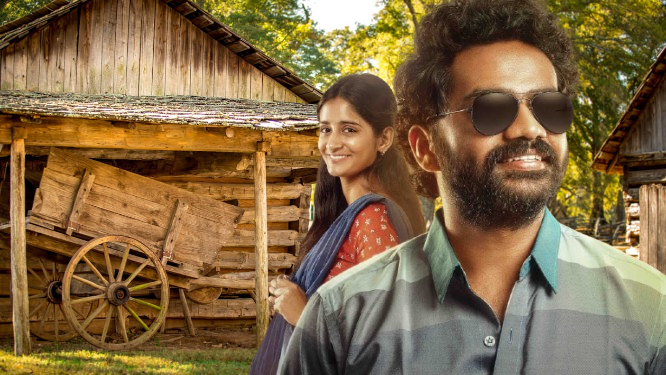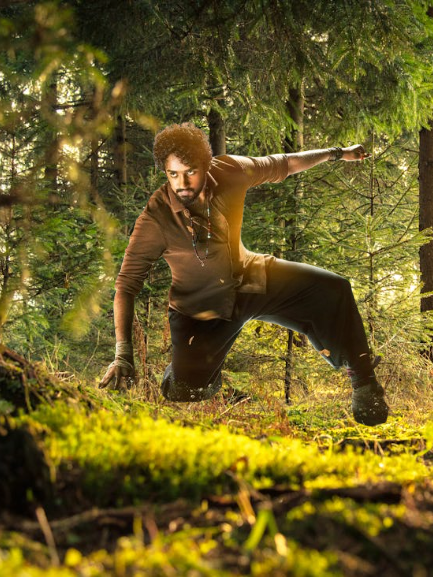SYG – Sambarala Yeti Gattu Movie 2025 Movierulz Review Details

SYG: Sambarala Yeti Gattu (2025) — Director’s Vision Review
Overview
🎬 Book Movie Tickets Online
Check showtimes, seat availability, and exclusive offers for the latest movies near you.
Check on BookMyShow →As a critic who’s covered 500+ films across Indian cinema, I watched Rohith KP‘s debut with keen interest. SYG is an ambitious period action drama that blends mythic motifs with gritty rebellion. Here I unpack the director’s choices, influences, and where this vision lands among contemporary pan-India epics.
Star Ratings (Overall & Director)
| Category | Score |
|---|---|
| Overall Film | 4 / 5 |
| Director’s Vision | 4.5 / 5 |
Note: This rating’s personal—could change on director’s cut.
Directorial Choices — The Big Picture
Rohith KP chooses scale over subtlety at many turns, which works because the film wears its ambition proudly. The decision to root the narrative in mythological undertones gives the story a timeless weight.
- Scope & Scale: Grand landscapes and large set-pieces to establish epic stakes.
- Tone: A raw, often brutal tonal palette that favors intensity over restraint.
- Pacing: Tight action beats interspersed with quieter, symbolic moments.
Insight: Rohith’s choice to mix myth with political rebellion defines the film’s identity.
Takeaway: When a director trusts big ideas, the result is polarising but memorable.
Pros of These Choices
The epic framing lifts familiar storylines into something grand. The visual grammar—long takes on landscapes, close-ups during confrontations—creates emotional and mythic resonance.
Cons to Note
At times, the mythic overlay overshadows character subtlety. Some scenes feel staged for spectacle rather than internal logic.
Influences & Inspirations
Rohith’s film often reminded me of pan-India sagas — the physicality of KGF, the tribal and land-conflict politics seen in modern epoch films, and a faint echo of classical Telugu folklore cinema.
Influences: Epic sagas, mythic storytelling, and rugged anti-hero films of the 2018–2024 wave.
Insight: The film borrows structural beats from large-scale Indian franchises but filters them through Rohith’s cultural lens.
Takeaway: This isn’t imitation — it’s selective homage with a distinct directorial signature.
| Choice | Effect |
|---|---|
| Mythic framing | Elevates stakes; risks abstraction |
| Large ensemble use | Deepens world; can dilute focus |
| Action-first staging | Helps mass appeal; might undercut nuance |
Comparison to Previous Works & Contemporary Trend
For a debut, Rohith is unusually assured. Compared to established directors who shaped pan-India epics, he demonstrates a confident sense of scale and tempo.
| Film/Director | Shared Trait | Difference |
|---|---|---|
| KGF (style) | Massive, stylised action | SYG uses more mythic symbolism |
| Regional folklore epics | Cultural texture | SYG modernises the palette |
Insight: Rohith stands on the shoulders of recent epics but insists on his own mythic vocabulary.
Takeaway: Audiences who liked recent pan-India epics will find a new voice here.
Director’s Signature Elements
- Symbolic imagery: Recurrent motifs (stone, river, flames) that signal fate and rebellion.
- Close-quarters intensity: Intimate framing during conflicts to make action feel personal.
- Sound-visual sync: Use of score and diegetic sound to heighten mythic beats.
These choices create a recognisable voice — a director who wants spectacle but also wants the spectacle to say something.
Cast & Collaborative Direction
Rohith extracts strong performances, especially from Sai Dharam Tej and Aishwarya Lekshmi. His direction allows actors to occupy mythic space without losing human textures.
| Actor | Role | Directorial Note |
|---|---|---|
| Sai Dharam Tej | Protagonist | Directed for physical intensity and restrained emotional beats |
| Aishwarya Lekshmi | Lead | Given space for emotional counterpoint |
| Jagapathi Babu / Sai Kumar | Antagonists | Staged as larger-than-life, aligning with the mythic tone |
Technical Team — How Rohith Uses Crew
Rohith’s collaboration with cinematographer Vetri Palanisamy and composer B. Ajaneesh Loknath is central. He trusts these creatives to translate his mythic shorthand into sensory experience.
- Cinematography: Long, sculpted frames that make landscapes a character.
- Score: Drives momentum and underlines mythic beats.
- Production design: Detailed worlds that justify the period setting.
Insight: Rohith uses technical collaborators to make thematic abstractions tangible.
Takeaway: A director’s vision needs skilled hands — and Rohith picked wisely.
Where the Vision Stumbles
Ambition sometimes tips into opacity. Viewers seeking tight realism may feel distanced by symbolism. A few character motivations could use clearer beats under the mythic weight.
However, these are growing pains typical of debut directors trying to balance scale and soul.
Audience & Awards Potential
SYG’s directorial voice positions it for awards in production design, cinematography, and original score. Rohith’s direction is a talking point for critics and cinephiles who favour bold debut statements.
Final Verdict
Rohith KP’s directorial debut is a confident and distinct statement. He combines spectacle with cultural texture and directs performances that live inside myth and flesh.
As a reviewer of many Indian epics, I find this film promising — it marks Rohith as a director worth watching.
Insight
Rohith uses myth not as decoration but as a structural device to elevate a land-rights rebellion into legend.
Takeaway
If you enjoy films that aim high and are willing to be bold (and occasionally messy) in pursuit of a unique voice, SYG is a rewarding watch.










